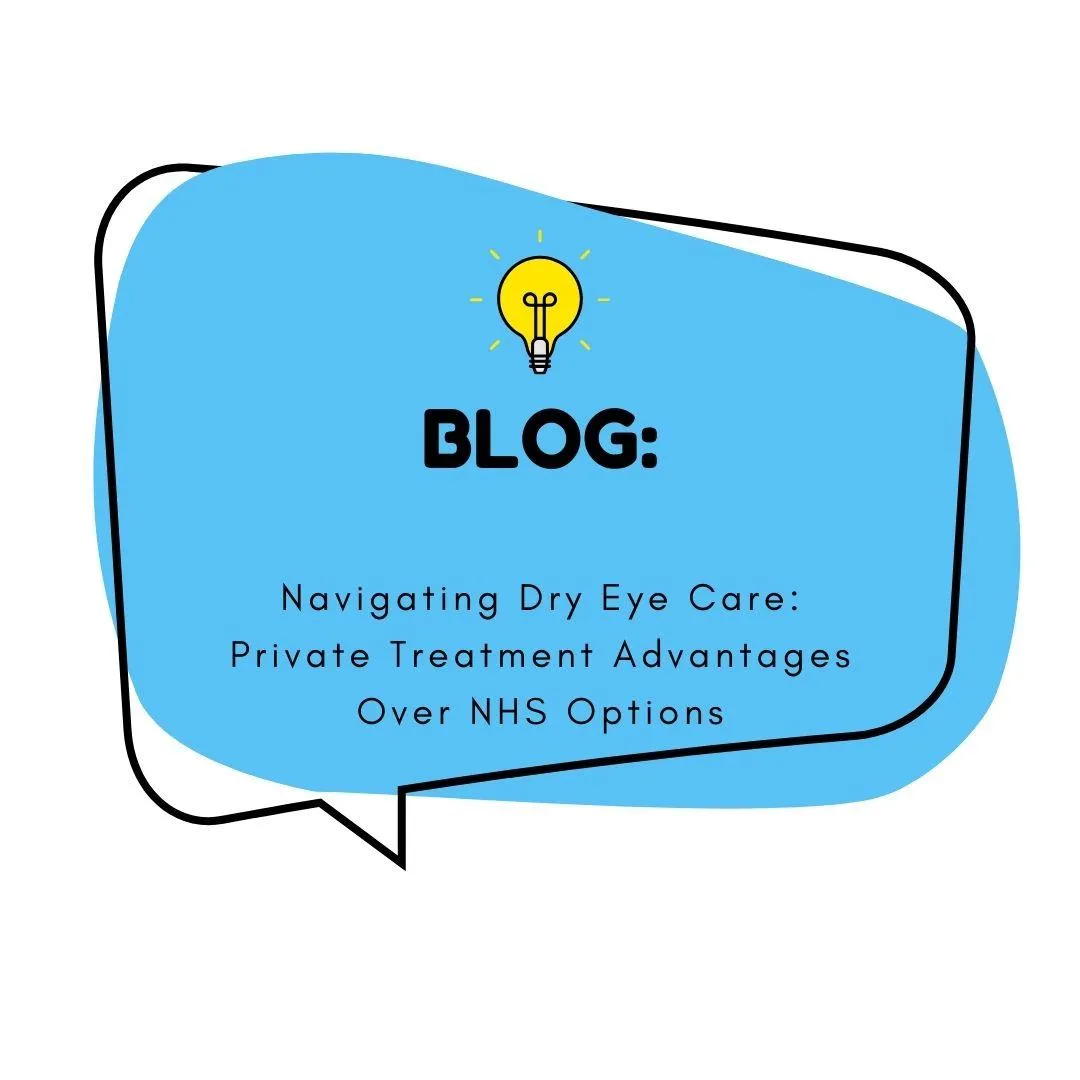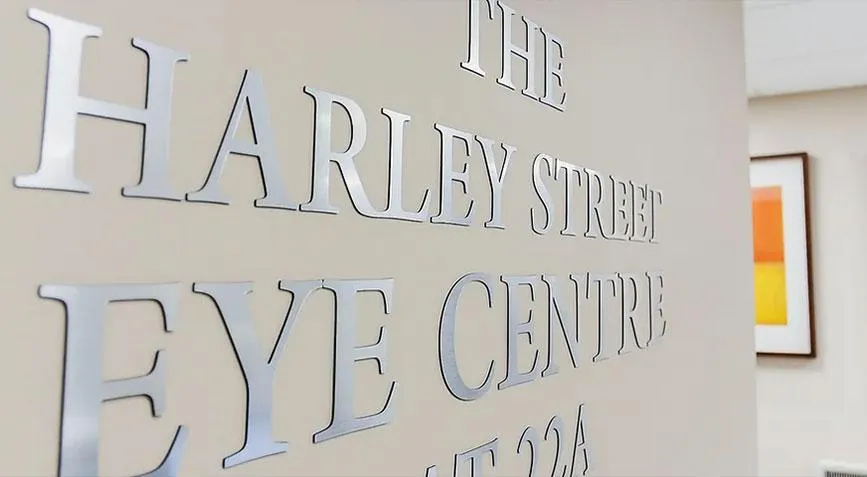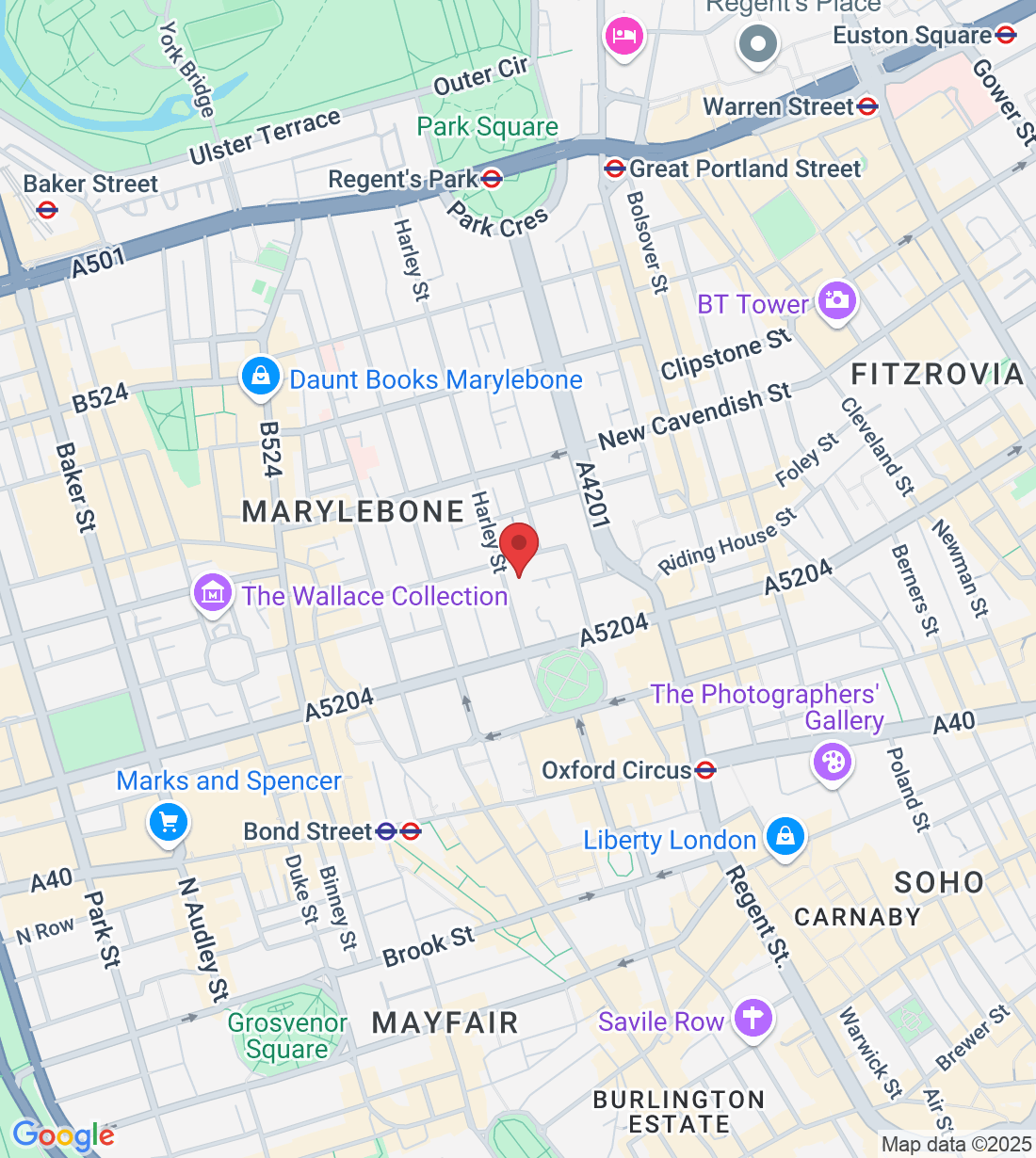
Navigating Dry Eye Care: Private Treatment Advantages Over NHS Options
Navigating Dry Eye Care: Private Treatment Advantages Over NHS Options
Dry eye, a prevalent condition impacting countless individuals, often requires thoughtful and comprehensive management. While the National Health Service (NHS) plays a crucial role in healthcare, the landscape of dry eye treatment has evolved, prompting many to explore private alternatives. In this exploration, we'll delve into the advantages of choosing private care for dry eye treatment, understanding the constraints faced by the NHS and the distinctive benefits offered by private clinics.
Understanding Dry Eye: A Common Concern
Dry eye syndrome, characterized by insufficient lubrication, can lead to discomfort, irritation, and potential harm to the eyes. Given its multifaceted causes, effective treatment demands a personalized and nuanced approach.
Delve into the world of dry eyelids and dry eye disease with 'Understanding the Link.' If this article caught your eye, discover more about the causes and treatments in our related posts.
Challenges within the NHS:
The NHS, a cornerstone of healthcare accessibility, primarily addresses dry eye with lubricating eye drops and warm compresses. While these methods are commendable for preventive care, they may fall short in delivering a comprehensive solution for those already grappling with dry eye symptoms.
Private Dry Eye Treatment: A Bespoke Approach
1. Tailored Treatment Plans:
Private clinics excel in providing tailored care. Through in-depth assessments, practitioners identify the specific causes and severity of dry eye, crafting individualized treatment plans. This personalized approach ensures interventions are not generic but precisely address the root of the problem.
2. Access to Advanced Therapies:
Private clinics offer a spectrum of advanced therapies that may not be readily available through the NHS. Treatments such as Intense Pulsed Light (IPL), punctal plugs, and LipiFlow represent innovative interventions capable of delivering targeted and effective relief for dry eye symptoms.
Intense Pulsed Light (IPL): An increasingly popular non-invasive procedure, IPL therapy uses light pulses to enhance meibomian gland function, reducing dry eye symptoms. Regrettably, this advanced treatment is not currently a standard offering within the NHS.
Punctal Plugs: Tiny devices inserted into tear ducts to conserve tears on the eye's surface. Though effective, this specialized intervention is not routinely provided by the NHS.
LipiFlow: Revolutionizing dry eye treatment, LipiFlow applies heat and gentle pressure to target meibomian gland dysfunction. Unfortunately, this procedure is not part of the typical NHS dry eye treatment repertoire.
Demystify Meibomian Gland Dysfunction (MGD) with our informative guide. If you found this enlightening, explore additional posts for a deeper understanding of symptoms, causes, and treatments.
3. Timely Appointments:
Private clinics often offer shorter waiting times for appointments and procedures compared to the NHS. Swift access to specialized care proves critical in managing and alleviating dry eye symptoms promptly.
4. Comprehensive Assessments:
Private practitioners conduct thorough assessments, utilizing advanced diagnostic tools to identify specific causes and the severity of dry eye. This meticulous understanding guides the formulation of a precise and effective treatment plan.
5. Holistic Approach:
A more holistic approach to dry eye management is a hallmark of private clinics. Considering lifestyle factors, environmental influences, and individual health conditions, this comprehensive strategy aims to address underlying causes rather than merely alleviating symptoms.
6. Long-term Cost Efficiency:
While private treatments may involve costs, they often prove cost-effective in the long run. Effective management and targeted interventions can potentially reduce the need for frequent appointments and over-the-counter lubricating eye drops, saving both time and money in the long-term.
Acknowledging NHS Pressures: A Balancing Act
Understanding the constraints faced by the NHS is crucial. The NHS, operating within limited resources and facing overwhelming demands, primarily focuses on preventive measures for conditions like dry eye. Lubricating eye drops and warm compresses play a vital role in averting severe dry eye symptoms but may lack the depth needed for comprehensive treatment.
Navigating Dry Eye Care Choices
Choosing between private and NHS care for dry eye management involves thoughtful consideration. While the NHS provides invaluable services, particularly for preventive measures, private clinics offer distinct advantages for those seeking optimal relief and ocular well-being. The bespoke approach, access to advanced therapies, timely appointments, comprehensive assessments, a holistic perspective, and potential long-term cost efficiency make private dry eye treatment an appealing choice. Recognizing the collaborative role of both systems ensures individuals can make informed decisions tailored to their unique needs and circumstances.
Ask And His Team
Fill in the form to request a Call From Our Team
One of our team will call you for FREE and answer any questions or concerns you may have about your eye health
WHERE TO FIND THE HARLEY STREET EYE CENTRE

22a Harley Street, London W1G 9BP
Mon - Fri: 10am - 7pm
On street parking paid through ring go app, no free parking available
Bond Street and Oxford Circus Tube Station
Opening Hours
Monday: 10:00am – 7:00pm
Tuesday: 10:00am – 7:00pm
Wednesday: 10:00am – 7:00pm
Thursday: 10:00am – 7:00pm
Friday: 10:00am – 7:00pm
© Copyright 2023. The Harley Street Eye Centre. All rights reserved.





